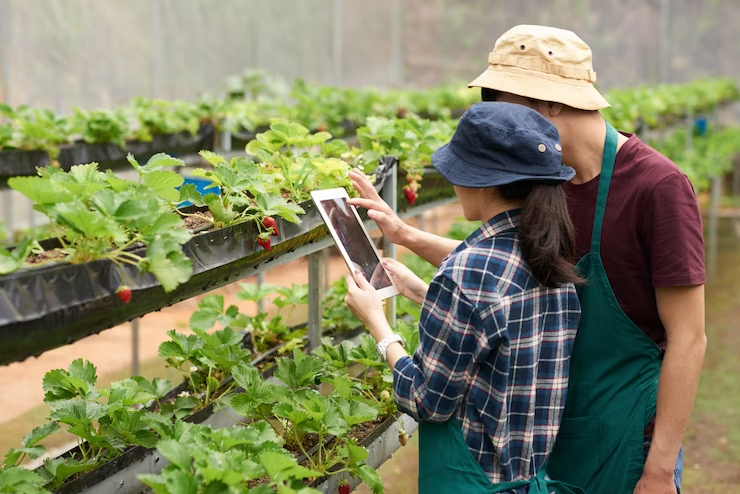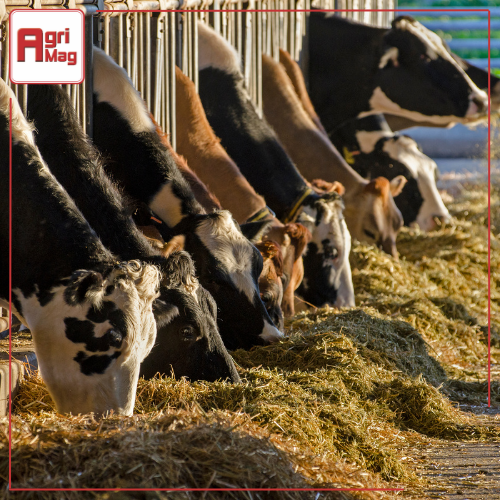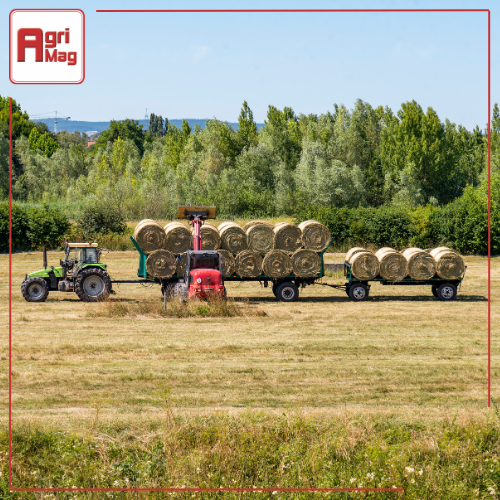
Promoting sustainable farming practices in South Africa
Date: 09/05/2023
In recent years, there has been a growing focus on promoting sustainable farming practices in South Africa. This shift towards sustainable agriculture has been driven by various factors, including climate change, environmental degradation, and the need to ensure food security for future generations. To achieve this goal, there have been efforts to promote the adoption of these practices across the country. These practices include the use of organic farming methods, conservation agriculture, regenerative farming, and the adoption of climate-smart farming practices. Are you looking for farm equipment for sale? Find everything you need on AgriMag today.
Read: In the Know: Regenerative Farming Questions and Answers
 Photo source: Freepik
Photo source: Freepik
Effective ways to promote sustainable farming practices in South Africa.
Sustainable farming is a method of agriculture that prioritises long-term environmental, social, and economic sustainability. One way to promote sustainable farming practices is by providing farmers with access to farm equipment that is designed to support these practices. Farming equipment has come a long way in recent years, and there are now many options available that are designed to support sustainable agriculture. For example, there are now machines that are specifically designed for conservation agriculture, such as no-till planters and weeders. These machines can help farmers to reduce soil erosion, conserve water, and reduce the use of herbicides.
Another way to promote sustainable farming is by providing farmers with education and training. Many farmers in SA have limited knowledge of sustainable farming practices and may not be aware of the benefits of these practices. Providing farmers with education and training can help to promote the adoption of sustainable farming and ensure that farmers have the knowledge and skills they need to implement these practices effectively.
The adoption of these farming practices in South Africa has the potential to have a significant impact on the country's agricultural sector. Reducing the use of harmful chemicals and promoting the conservation of natural resources can help to improve the health of the environment and promote the long-term sustainability of agriculture in the country.
 Photo source: Freepik
Photo source: Freepik
10 benefits of sustainable farming practices.
Reduced soil erosion: Sustainable farming practices such as conservation agriculture and crop rotation can help to reduce soil erosion. By reducing soil erosion, farmers can maintain the quality of their soil and reduce the risk of crop failure.
Reduced water use: Farming practices like drip irrigation and mulching can help to reduce water use. This is important in a country like SA, where water scarcity is a significant issue.
Improved soil health: Cover cropping and composting can help to improve soil health, which is more productive and can support better crop yields. Click/tap here to read more about soil health indicators and how they can help your farm.
Reduced use of chemicals: Sustainable farming can help to reduce the use of harmful chemicals such as pesticides and herbicides. It will also help to protect the health of farmers, consumers, and the environment.
Increased biodiversity: Increase biodiversity on your farm by implementing practices such as crop rotation, agroforestry, and creating habitats for wildlife. It will promote biodiversity by preserving natural habitats and encouraging the growth of a variety of crops.
Improved livelihoods: Sustainable farming can help to improve the livelihoods of farmers by increasing their income and improving the productivity of their farms.
Reduced greenhouse gas emissions: Practices like no-till farming and the use of renewable energy sources can help to reduce greenhouse gas emissions. This is important in the fight against climate change.
Improved food security: It can help to improve food security by increasing the availability and quality of food. This is particularly important in a country like South Africa, where many people struggle to access nutritious food.
Lower production costs: The use of organic fertilisers can help to lower production costs. This can make farming more profitable for small-scale farmers. It can also help to lower costs by improving soil health and fertility through cover cropping, conservation tillage, and the use of compost, which can reduce the need for external inputs and improve yields.
Increased resilience: It can help farmers to build resilience to climate change and other environmental challenges. By adopting practices that conserve natural resources, farmers can ensure the long-term sustainability of their farms.
 Photo source: Freepik
Photo source: Freepik
Read: 10 Ways to Incorporate Regenerative Farming Practices on Your Farm
Promoting sustainable farming practices in South Africa is essential for ensuring the long-term sustainability of the country's agricultural sector. By providing farmers with access to education, training, and farm equipment that is designed to support sustainable agriculture, we can help to promote the adoption of these practices and ensure that farmers have the knowledge and skills they need to implement them effectively. For farm equipment for sale on AgriMag, visit our website today.
Categories:
Common category
Category Search:
Latest articles:

What to Look for When Buying a Skidsteer Loader for Farming

Why Planning Early for the Planting Season Pays Off

Why Winter Feed Management is Crucial for Livestock Health



